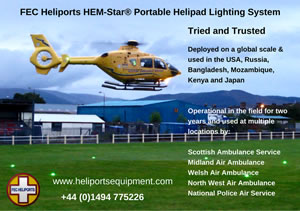BAE SYSTEMS plc2005-01-18 20:09:16
BAE SYSTEMS RAD750 MICROPROCESSOR TO HELP NASA STUDY COMET
BAE Systems radiation-hardened microprocessors have begun a six-month, 83-million mile journey on NASA's Deep Impact mission to study the nucleus of comet Tempel 1. The mission was successfully launched from Cape Canaveral on January 12.
Deep Impact will be the first space mission to make contact with a comet's surface. In July 2005, the spacecraft will launch an 820-lb. probe into the nucleus of comet Tempel 1 to reveal what is underneath its icy surface.
BAE Systems RAD750 microprocessors, manufactured at its Manassas, Virginia., facility, will process and help return the data of the probe's collision to scientists on Earth. The three RAD750 computers will also help navigate the satellite to the comet and maintain precise position while the advanced telescopes on-board record the event.
"This mission will increase scientists understanding of comets,� said Cesare Caprio, space technology manager for BAE Systems at Manassas. "Our RAD750 computers are critical to provide this data back to Earth and provide scientists the first-ever look at the nucleus of a comet.�
BAE Systems has a 20-year history of providing radiation-hardened solutions for U.S. space programs. Its RAD6000 computers were installed on each of the still-broadcasting Mars Rovers - the only control and data computers aboard the two Rovers - to execute flight, landing and exploration operations on Mars. The RAD750 represents the next-generation of space microprocessors.
BAE Systems radiation-hardened microprocessors have begun a six-month, 83-million mile journey on NASA's Deep Impact mission to study the nucleus of comet Tempel 1. The mission was successfully launched from Cape Canaveral on January 12.
Deep Impact will be the first space mission to make contact with a comet's surface. In July 2005, the spacecraft will launch an 820-lb. probe into the nucleus of comet Tempel 1 to reveal what is underneath its icy surface.
BAE Systems RAD750 microprocessors, manufactured at its Manassas, Virginia., facility, will process and help return the data of the probe's collision to scientists on Earth. The three RAD750 computers will also help navigate the satellite to the comet and maintain precise position while the advanced telescopes on-board record the event.
"This mission will increase scientists understanding of comets,� said Cesare Caprio, space technology manager for BAE Systems at Manassas. "Our RAD750 computers are critical to provide this data back to Earth and provide scientists the first-ever look at the nucleus of a comet.�
BAE Systems has a 20-year history of providing radiation-hardened solutions for U.S. space programs. Its RAD6000 computers were installed on each of the still-broadcasting Mars Rovers - the only control and data computers aboard the two Rovers - to execute flight, landing and exploration operations on Mars. The RAD750 represents the next-generation of space microprocessors.
For more information contact:
Stirling Square
6 Carlton Gardens
London
SW1Y 5DA
United Kingdom
Tel: +44 1252 37 32 32
Fax: +44 1252 38 30 00
